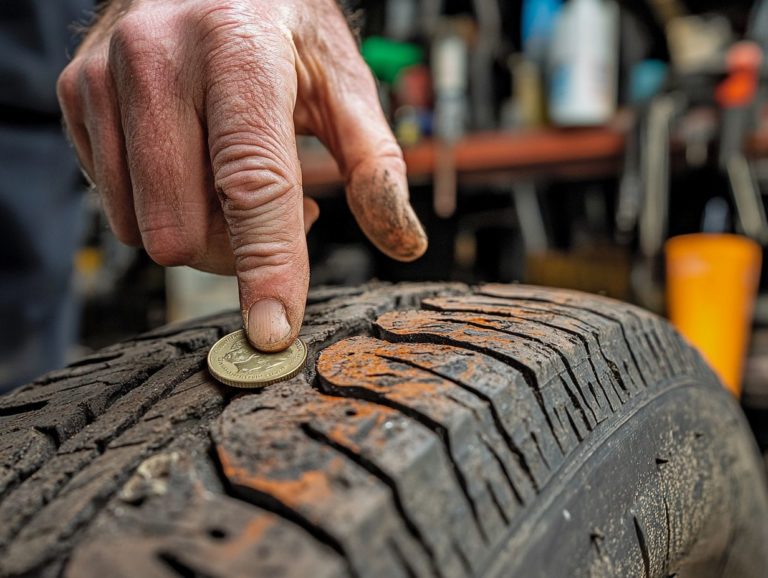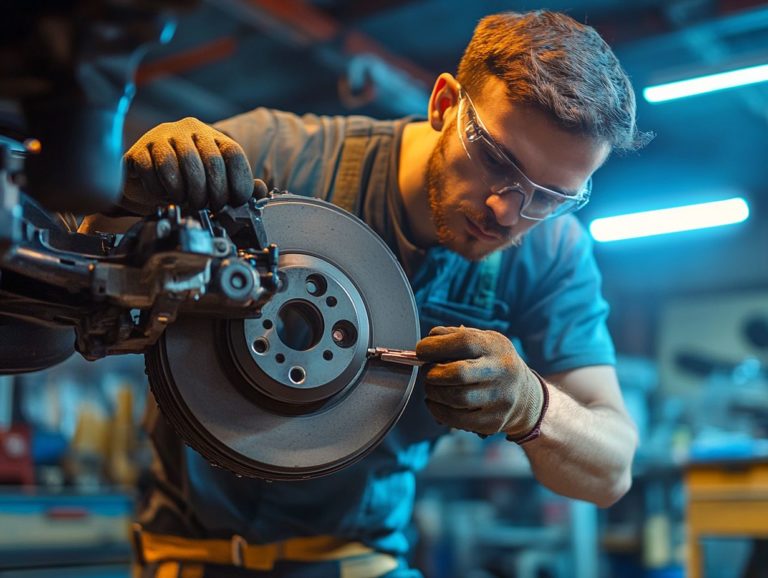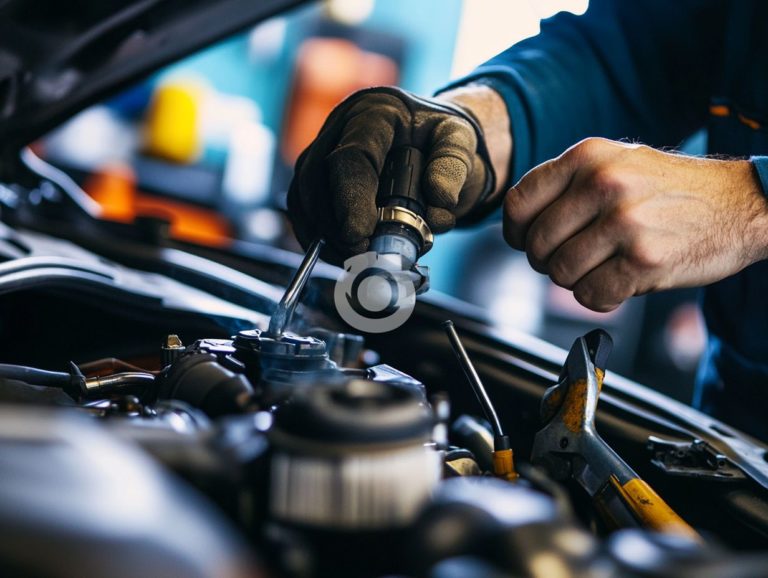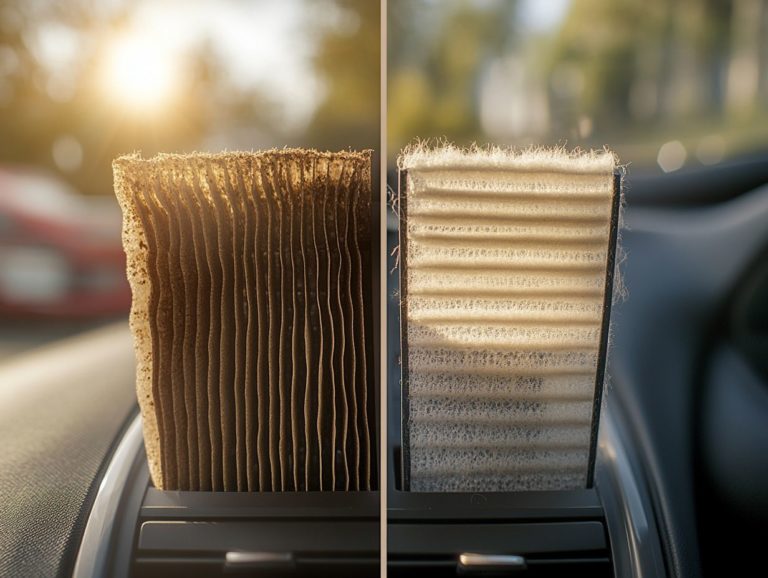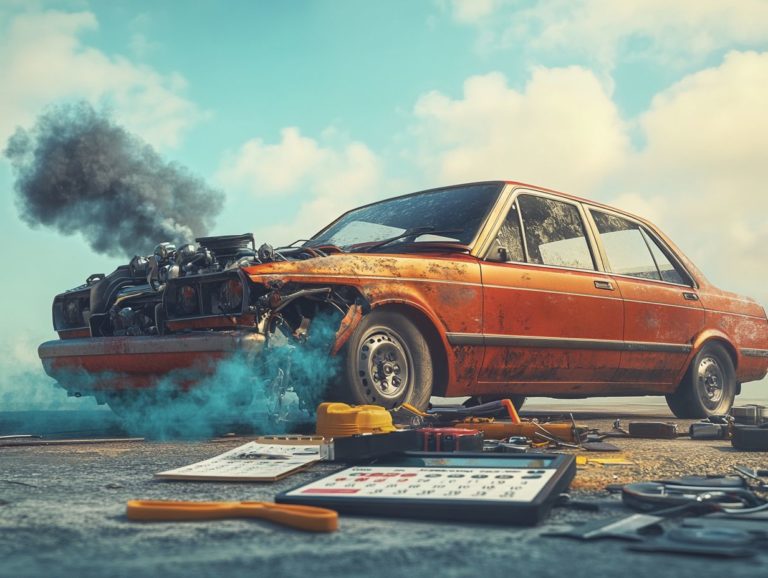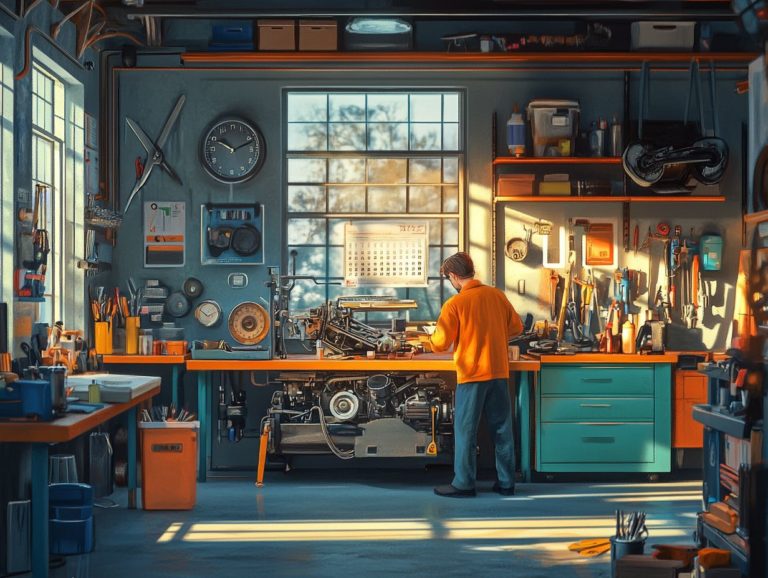What to Do if Your Car Overheats
Is your car’s temperature gauge inching into the red zone? Overheating can spell serious trouble, potentially leaving you stranded on the roadside.
This article delves into the common causes and warning signs of overheating, along with immediate steps you can take to handle the situation safely. It provides a clear path for diagnosing the issue, offers temporary fixes to help you reach a mechanic, and shares preventive maintenance tips to keep your vehicle running smoothly.
Continue reading to equip yourself with essential knowledge for those unexpected moments on the road.
Contents
Key Takeaways:
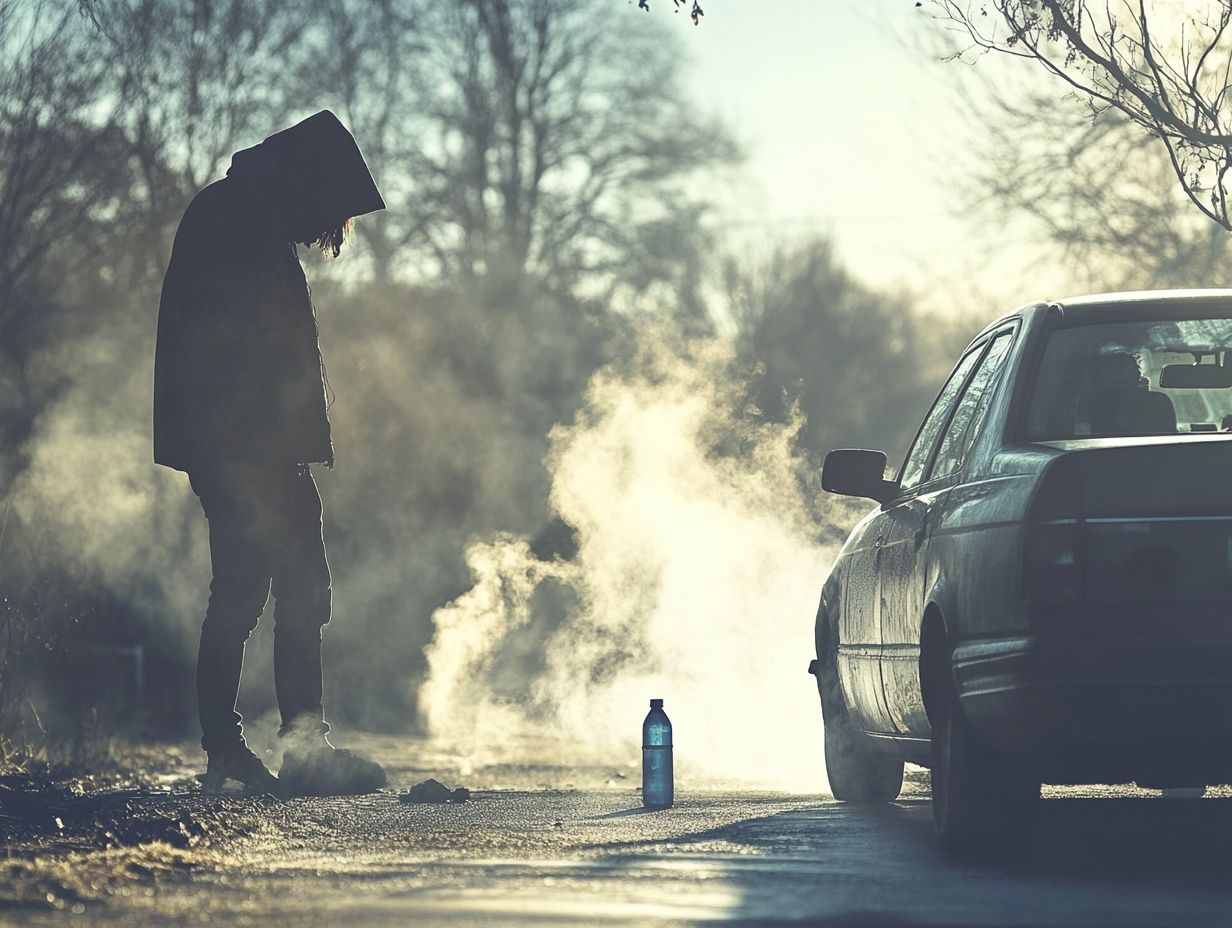
- Be aware of warning signs, such as steam or smoke coming from the engine, to prevent potential breakdowns on the road.
- If your car overheats, safely pull over and assess the situation by checking coolant levels and contacting a mechanic for diagnosis and repair.
- In case of emergency, temporarily fix the overheating issue by adding water or coolant. However, prioritize getting your car to a mechanic for a lasting solution. Remember to practice preventive maintenance to avoid future overheating.
Understanding Car Overheating
Car overheating is a critical issue that demands immediate attention to prevent substantial engine damage. As a driver, it’s vital for you to grasp the causes and consequences of engine overheating to safeguard your vehicle s wellbeing and ensure your safety on the road.
A coolant system issue can contribute to overheating. Insufficient coolant levels and neglected radiator maintenance are also key factors. Regularly inspecting your car s engine components allows you to pinpoint potential issues before they become serious, giving you peace of mind whether you’re embarking on a summer road trip or navigating your daily commute.
Causes and Warning Signs
Identifying the causes and warning signs of engine overheating is essential for safeguarding your vehicle against serious damage.
Several common culprits can lead to overheating. These include coolant leaks from worn-out hoses or a damaged radiator, which allow vital fluids to escape. A faulty water pump may disrupt the circulation of coolant, placing additional strain on the engine. Running low on engine oil can also increase friction, worsening the temperature situation.
Be vigilant for warning signs, such as smoke rising from the engine bay or an unusual reading on the temperature gauge. These are clear indicators that immediate attention is needed. Regular vehicle maintenance and routine checks can help mitigate these issues, ultimately extending the life of your engine.
Immediate Steps to Take
When you observe your engine temperature climbing, your first action should be to safely pull over to a secure location to evaluate the situation. This can avert further engine damage and enables you to inspect your vehicle thoroughly.
Once you’ve come to a stop, assess for any visible signs of trouble, such as steam or smoke emanating from the engine. Ensure that your dashboard indicators are displaying normal readings. If you notice anything concerning, seek assistance from a reputable repair shop like Jiffy Lube to address the issue.
Safely Pulling Over and Assessing the Situation

When you find it necessary to pull over due to an overheating engine, it s crucial to do so in a safe location, away from the hustle and bustle of traffic. Your safety, and that of others, is paramount.
Once you ve parked safely, take a moment to assess the situation calmly and methodically. Begin by glancing at the temperature gauge on your dashboard; it will provide insight into the severity of the overheating.
If the gauge is reading dangerously high, proceed with caution. Carefully observe the area around the engine for any signs of coolant leaks or steam, which could indicate a problem with the cooling system.
Don t forget to inspect the hoses and belts for visible wear or damage. Being meticulous in your examination can help you avoid further complications and ensure your safety while you wait for assistance.
Diagnosing the Problem
Diagnosing an overheating engine requires a meticulous approach to pinpoint the main reason among the many factors that can contribute to engine issues.
By systematically analyzing each potential culprit, you can effectively navigate the complexities of the situation and restore optimal performance.
Identifying the Main Reason
Identifying the main reason for engine overheating is crucial for making effective repairs and preventing future issues.
Common culprits often include coolant leaks. A quick inspection can uncover puddles or damp spots beneath your vehicle.
If the thermostat is stuck closed, it won t let coolant flow properly, causing temperatures to rise. A failing water pump can also disrupt circulation, leading to overheating.
You should remain vigilant for multiple warning signs, such as fluctuating temperature gauges or a hot engine smell.
Regularly assessing these components can save you both time and money, ensuring your vehicle operates smoothly and minimizing the risk of severe damage.
Temporary Fixes for Overheating
If your engine overheats, having knowledge of some temporary fixes can be essential for safely navigating your way to a repair shop.
Emergency Solutions to Get You to a Mechanic
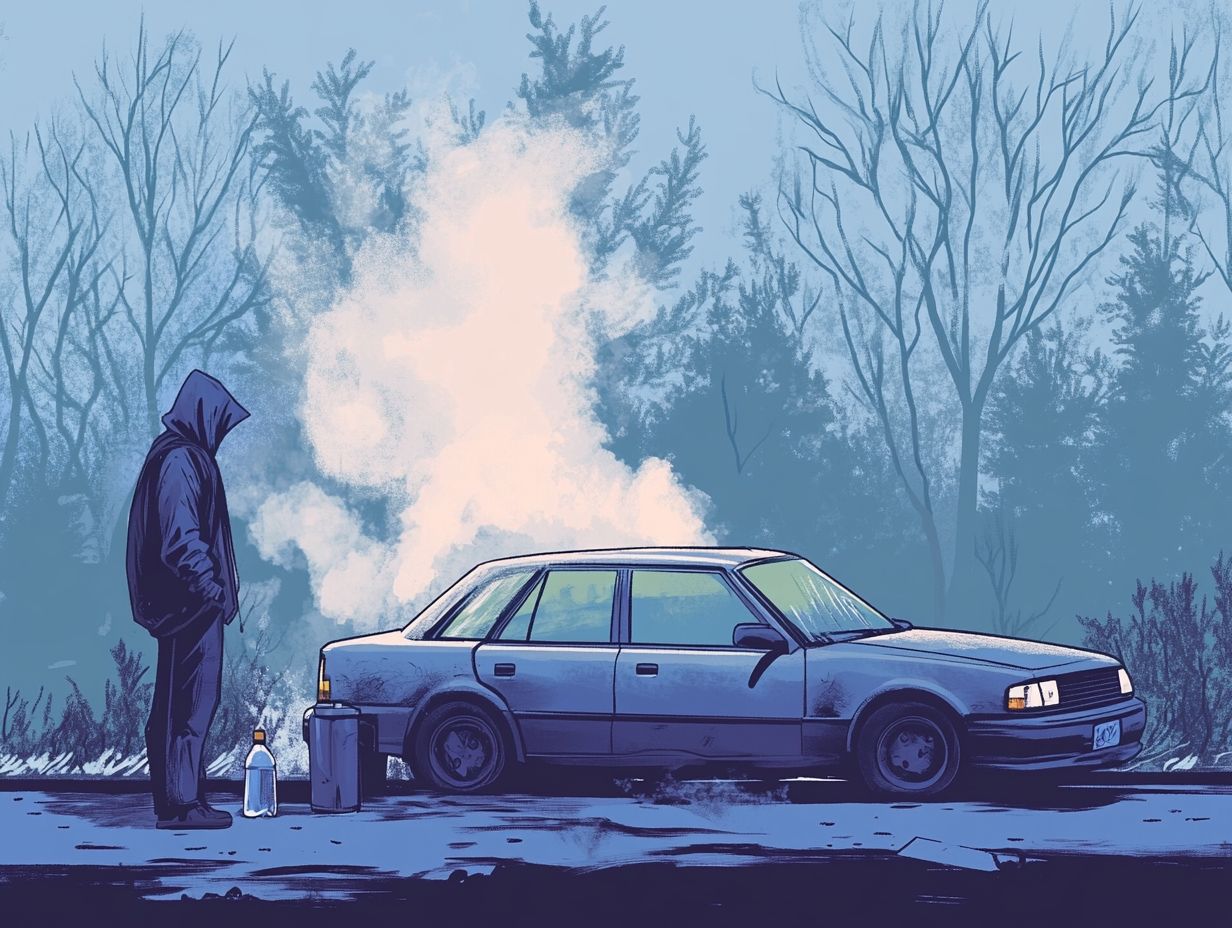
When you find yourself dealing with overheating, having a few emergency solutions at your fingertips can be the difference between saving your engine and facing irreversible damage.
One effective strategy is to keep a close eye on the temperature gauge; being vigilant about any spikes will help you take immediate action when necessary.
Consider using a coolant temporarily, as it can provide some much-needed relief, allowing your engine to cool down before you make your way to a professional like Jiffy Lube.
It’s essential to maintain the integrity of your coolant system by regularly checking for leaks and ensuring that fluid levels are where they should be.
Inspecting vital engine components such as hoses and the radiator can help prevent further overheating, ensuring that you arrive at the mechanic without causing any additional harm to your vehicle.
Preventing Overheating in the Future
To prevent future overheating, adopt a proactive approach that emphasizes regular maintenance and inspections of your vehicle’s key components.
Maintenance Tips and Strategies
Incorporating effective maintenance tips and strategies is essential for ensuring proper coolant circulation and managing your vehicle s temperature.
Routine fluid checks, including monitoring coolant levels, are vital for maintaining optimal performance.
Proactive radiator maintenance can prevent overheating; ensuring the fins are clean and free from debris will significantly enhance efficiency.
It s also crucial to regularly inspect engine components like hoses and belts for any signs of wear. Keep an eye on the water pump, which plays a key role in circulating coolant.
By staying proactive with these maintenance tasks, you can extend your vehicle’s lifespan and avoid costly repairs that often sneak up on you down the road.
Frequently Asked Questions
What to Do if Your Car Overheats?

If your car starts to overheat, the first thing to do is pull over to a safe location and turn off the engine.
What are the common causes of a car overheating?
A car can overheat due to several reasons, including low coolant levels, a malfunctioning thermostat, a leak in the cooling system, or a faulty radiator.
What should I do if my car overheats while I’m driving?
If your car starts to overheat while you’re driving, turn off the air conditioning, open the windows, and find a safe place to pull over.
How can I prevent my car from overheating?
Regularly check and top off coolant levels, monitor the temperature gauge, and address any leaks or malfunctions to prevent your car from overheating.
To summarize, staying proactive with maintenance and paying attention to your vehicle’s signs can help you avoid overheating issues in the future. Regular checks and professional help are key to keeping your car running smoothly.
Can I drive my car if it’s overheating?
No, you cannot drive a car that is overheating. Pull over right away and turn off the engine to prevent further damage.
Do I need to take my car to a mechanic if it overheated?
If your car overheats, taking it to a mechanic is essential. They can diagnose and fix the issue before it leads to expensive repairs.

